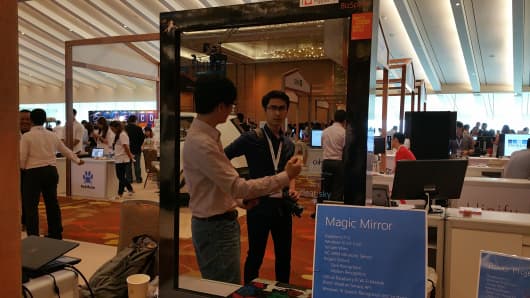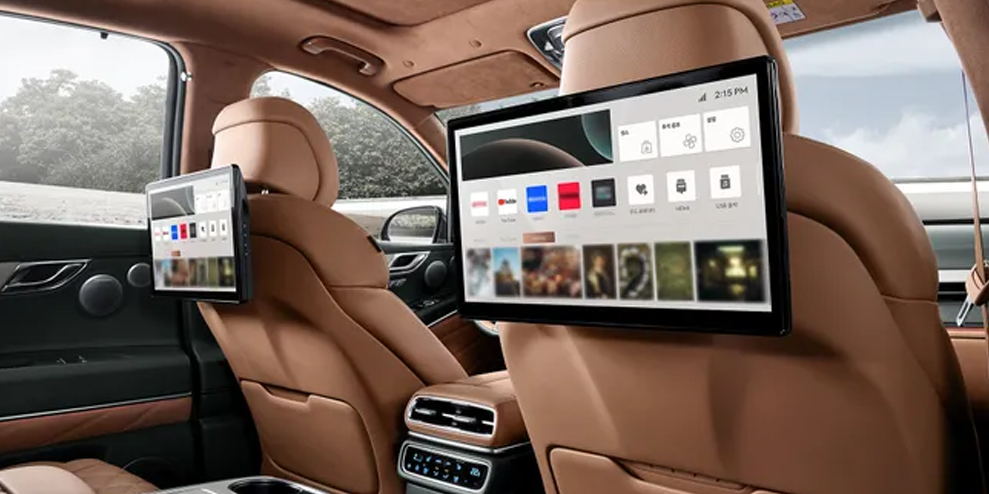Microsoft has developed a mirror that can read your emotions
You CAN be smart and good-looking. That’s the message from Microsoft‘s Magic Mirror – a so-called smart mirror that can recognize and greet users, read their emotions and display the weather, time and other information. All the while looking just like a regular mirror.
“Imagine when you wake up in the morning, you’re able to use the mirror to style your hair, do your make up, and while doing that, you can also view the weather,” Izzat Khair, a member of Microsoft Singapore’s developer experience team explained.
The Magic Mirror has a hidden facial-recognition camera that can detect eight human emotions, including anger, happiness and surprise. Microsoft plans to expand the mirror’s features, allowing it to show app-fed news as well as Facebook and Twitter feeds in a display panel.

Saheli Roy Choudhury | CNBC. Microsoft’s smart mirror, called Magic Mirror, and showcased at the InnovFest Unbound 2016, a digital technology conference in Singapore, has a facial recognition feature and can tell the weather, date, time and location.
The mirror was still at the demo stage but had real business potential, Khair said, pointing out that the advertising and marketing industries, for example, could use the technology.
“Imagine on the monitor of the mirror, you’re able to play an advertisement. And you have a camera that can snap a photo of the users that are viewing the advertisement,” he said.
The mirror’s facial-recognition features could then provide real-time information to advertisers on how viewers reacted to the advertisement, he added.
The Magic Mirror was one of a number of tech products on display at InnovFest UnBound 2016, a digital technology conference, to illustrate the changing ways users were interacting with technology.
In an address at InnovFest on Tuesday, Singapore’s Minister for Foreign Affairs Vivian Balakrishnan said he wanted the country to build an operating system database for 100 million smart objects over the next five years, as the Internet of Things trends took off.
Microsoft is working with Singapore’s government agencies on boosting the city-state’s IoT ecosystem, as well as on talent development, research, cyber security and public sector partnership, as part of the country’s Smart Nation initiative.
In keeping with the focus on cyber security, Khair said that the data processed by the mirror was stored on a private cloud that Microsoft‘s programmers could not access, and the data was deleted after seven days.




